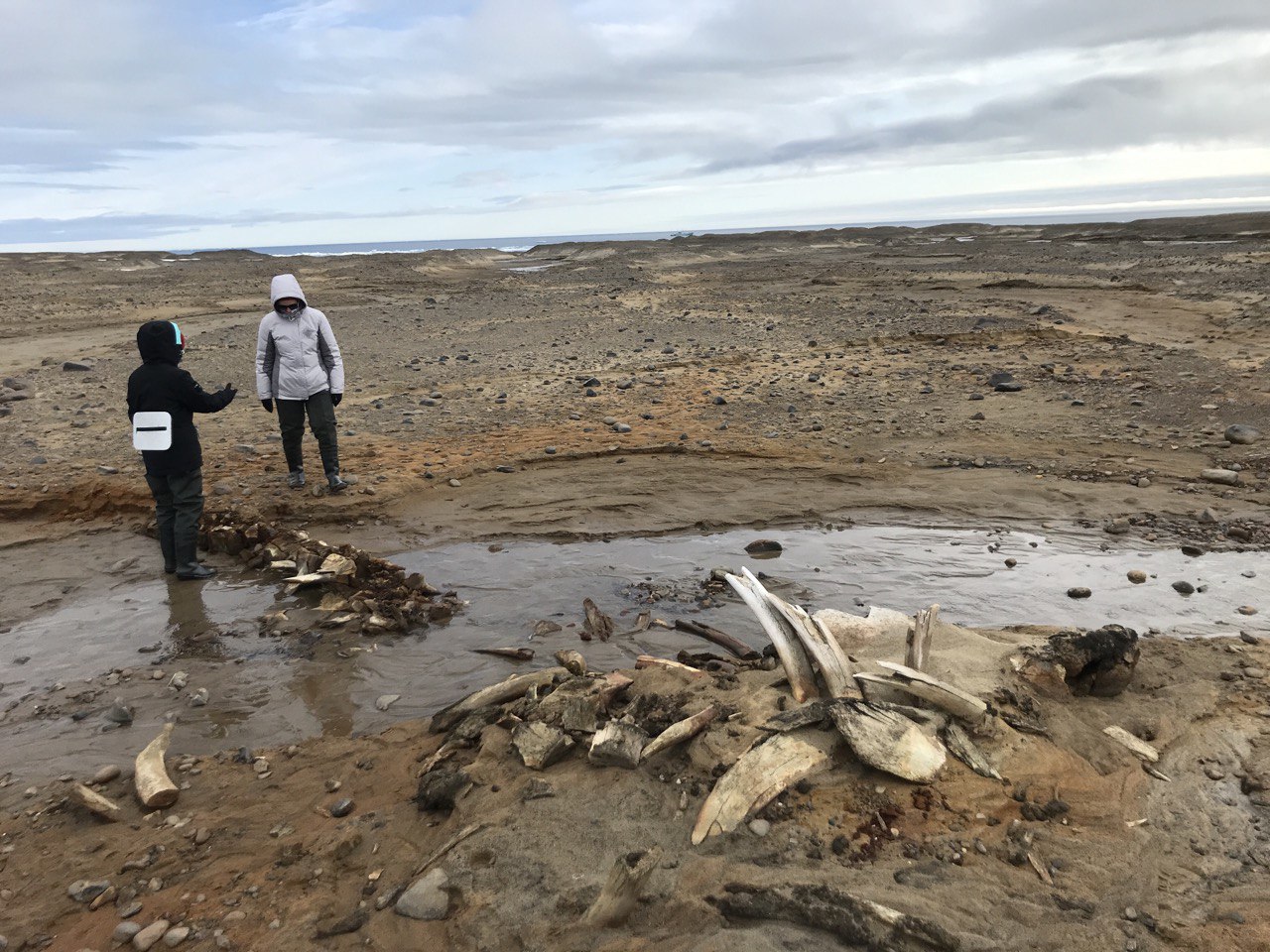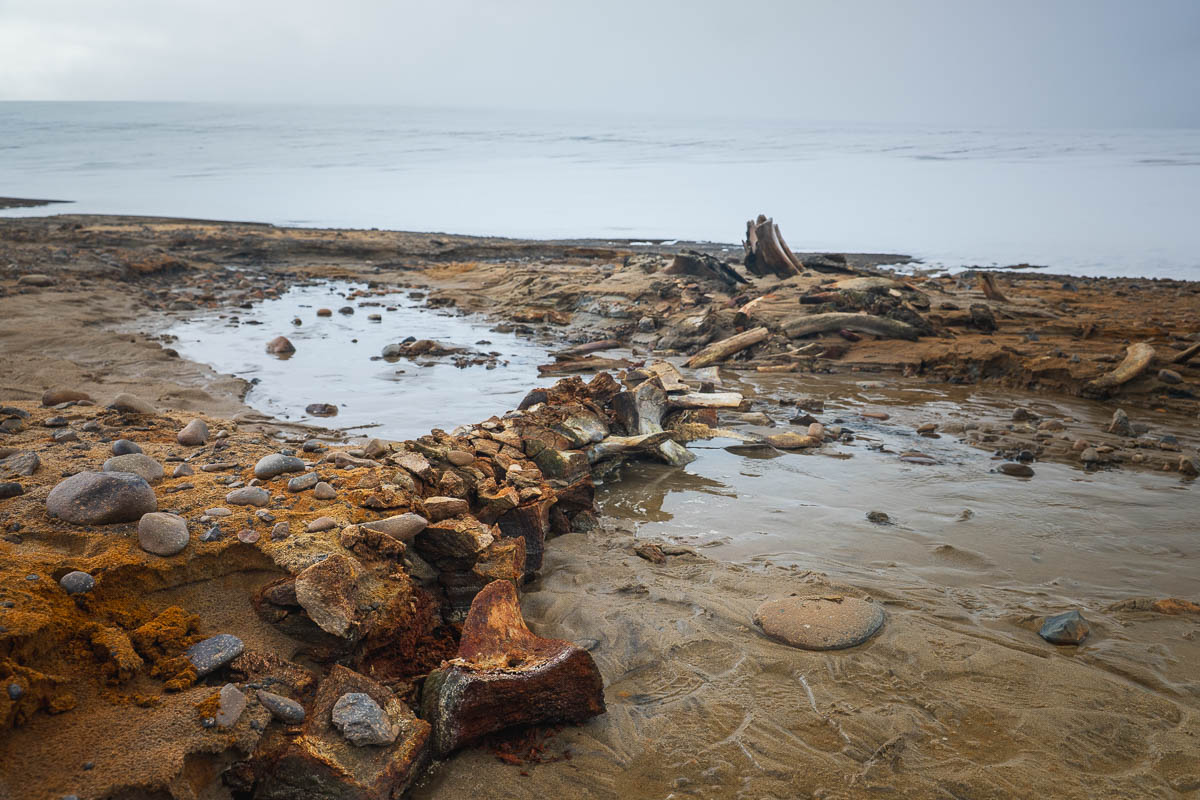A melting glacier has pulled back the veil on a prehistoric whale graveyard in Russia.
Scientists at Russia’s Arctic and Antarctic Research Institute (AARI) recently found the gathering of whale skeletons on Wilczek Island in the Franz Josef Land archipelago, northern Russia, during the study of the region’s permafrost.
“Having compared the current position of the glacier with satellite imagery, we came to the conclusion that in less than 20 years, the island’s ice cap split into two parts, exposing a surface area of several square kilometers. A large number of whale bones were found on the marine terrace that emerged from under the glacier,” Nikita Demidov, a researcher at the AARI, said in a statement.

More researchers study the remains on Wilczek Island in the Franz Josef Land archipelago.
Image credit: Nikita Demidov, AARI, Alexander Ermolov
“Some skeletons thawing out of the permafrost on the periphery of the glacier are well preserved. The paleontological find indicates an episode of extremely rapid sea level change in the area of the northernmost archipelago of Eurasia, which occurred in the last few thousand years,” said Demidov.
The researchers haven’t yet disclosed the number or species of whale remains, but images suggest multiple large individuals are present.
It’s estimated that the world’s glaciers collectively lost 6,542 billion tonnes of ice between 2000 and 2023 as a result of climate change. This loss has serious consequences, from the destruction of wildlife habitats to rising sea levels, but it also offers a rare opportunity to study landscapes that have been hidden beneath ice for tens of thousands of years.

It’s currently unclear which species the whales belonged to.
Image credit: Nikita Demidov, AARI, Alexander Ermolov
Prehistoric whale graveyards have been discovered around the world, sometimes in the most unexpected places. One of the most outstanding can be found in the Atacama Desert of Chile, one of the driest places on Earth. While expanding part of the Pan-American highway in 2010, workers unearthed 40 near-perfect whale skeletons. Analysis of the remains suggested the group died in a one-off event, perhaps a harmful algae bloom.
Another site, known as Whale Bone Alley, was discovered by Soviet scientists in the 1970s on Yttygran Island along Russia’s far northeastern coast. The now-uninhabited island features a long strip of bowhead skulls and jawbones that were planted vertically in the icy ground, like a decorative monument that guides you down a path. It’s believed the site once served as a butchering and storage area for whale meat, used by the local Yupik people before they migrated to the mainland.
Source Link: Giant Prehistoric Whale Graveyard Revealed By Disappearing Glacier In The Russian Arctic